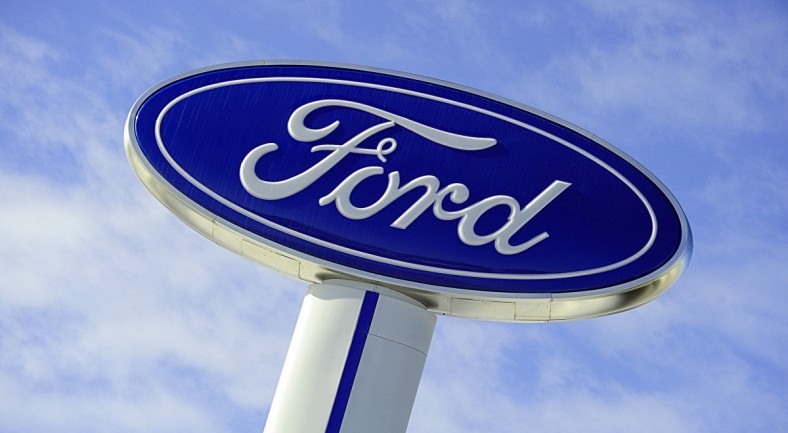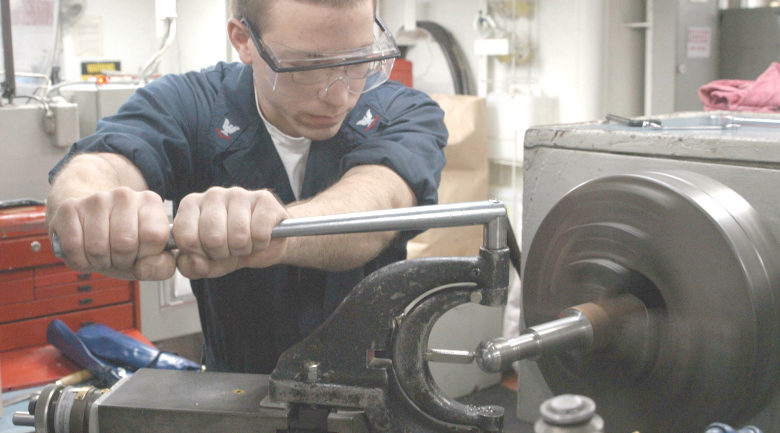Offshoring has been a staple of the manufacturing industry for decades, but trends have been changing. Over the past few years, reshoring — bringing jobs and processes back to America — has grown steadily. This effort impacts manufacturing as well as the economy as a whole.
Non-durable manufacturing accounts for 4.8% of the GDP and has proved crucial in creating jobs amid COVID-19. That figure doesn’t even account for the entire industry. It’s clear that manufacturing has a considerable impact on the economy, so reshoring in the sector is a big deal.
This effort towards domestic manufacturing isn’t the result of a single factor, but several. As these trends continue to grow, so will their impact on manufacturing. Here are five of the most prevalent.
Automation
Comparatively cheaper production costs in foreign countries are one of the most substantial factors behind offshoring. Now that automation is more widely available for manufacturers, offshoring may no longer be more affordable. The savings from automation allow manufacturers to keep their operations domestic.
Many people cite automation as a threat to American jobs, but it may actually create more. General Motors brought more than 15,000 jobs back to the U.S. in a period of massive digitization. Even though the auto industry uses more robots than any other manufacturing sector, it also leads the field in job creation.
Without the savings advantages of automation, manufacturers may outsource entire factories to foreign nations. An automated factory may mean fewer jobs than a traditional one, but it does provide more local jobs than offshoring. Counterintuitive as it may seem, the industrial world’s trend towards automation can help increase American jobs.
The Amazon Effect
Changing customer expectations are also influencing the manufacturing industry’s move towards domestic production. One of the most substantial changes is something called the Amazon Effect, where consumers expect faster service. Since Amazon delivers fast shipping and has exploded in popularity, people expect the same from all sources.
Companies need to fulfill orders fast, so products have to move from the factory to the logistics chain quickly. Manufacturers that have to ship parts and products from overseas are at an obvious disadvantage here. Domestic manufacturing enables companies to move fast enough to account for the Amazon Effect.
The Amazon Effect is about more than just fast shipping, too. It also entails adapting to sudden market shifts. Shorter lead times from domestic manufacturing enable factories to keep smaller inventories, which improves flexibility. They can then shift to making new products and meeting new demands faster than an offshoring company.
Global supply chain issues
Over the past few years, international tensions have been rising, especially between the U.S. and China. As Americans have grown more suspicious of China, it casts doubt over products outsourced there. That, combined with global supply chain disruptions from COVID-19, is starting to impact manufacturing.
China was the United States’ primary source of medical PPE but had to reduce PPE exports to address COVID-19 in their country. As a result, the need for American-made PPE became all the more clear. As more companies faced supply chain disruptions from shutdowns overseas, it revealed the shortcomings of offshoring.
Domestic production is more reliable in a crisis, especially one as impactful as COVID-19. On top of that, negative views towards China have risen sharply among U.S. citizens recently. As the nation grows more distrusting of China, manufacturers who don’t offshore there become more appealing.
Production quality
Another prominent issue fueling the domestic manufacturing movement is product quality. Many foreign nations could offer lower material costs because the materials were of lower quality. Similarly, production was often affordable because these countries didn’t hold manufacturers to the same standards.
While these factors made outsourced manufacturing affordable, they typically led to poor-quality products. As American consumers adopted higher quality standards, these cheap products became less desirable. If these goods don’t sell well, then any cost savings from outsourced production don’t matter as much.
Just 35% of Baby Boomers say they’d pay more for high-quality products, but 55% of Millennials would. As millennials and like-minded Gen-Zers make up a more substantial portion of the market, these opinions impact manufacturing. Companies that want to appeal more to modern consumers have to ensure higher-quality goods, which is easier with domestic manufacturing.
Environmentalism
When talking about industry trends impacting reshoring, it’s hard not to mention environmentalism. Across the past few years, environmental concerns have grown, both in severity and in public awareness. As consumers become more concerned about sustainability, manufacturing in countries with lower environmental standards becomes less favorable.
While U.S. CO2 emissions have decreased since 2006, China’s emissions have grown, making Chinese-made products less eco-friendly. Offshoring’s environmental impact goes beyond national differences in emission levels, too. A longer supply chain means more transportation, so even sustainably made goods can lead to higher emissions thanks to shipping.
An impressive 73% of Millennial consumers say they’re willing to pay more for a sustainable product. That’s too considerable an advantage for manufacturers to ignore. Manufacturers that want more success with today’s consumers have to be more eco-friendly, and outsourced manufacturing is far from sustainable.
Government environmental laws aside, it’s more challenging to regulate a factory that’s thousands of miles away. Similarly, while manufacturers can access clean power for facilities in the U.S., green transportation isn’t available at scale yet. Considering all of these challenges, it’s far more sustainable to make goods in the U.S.
The reshoring movement shows no signs of stopping
The manufacturing industry’s move back to America has been growing steadily over the past decade. In 2014, the U.S. saw a net gain of 10,000 reshored jobs for the first time in 20 years. Since then, these factors that drive the movement have only grown, leading to more manufacturers favoring domestic production.
Automation, the Amazon Effect, quality standards, distrust of the global supply chain and environmentalism are still growing. As these trends continue to rise, the domestic manufacturing movement will do the same, bringing jobs with it. Offshoring may have been the industry standard for years, but it won’t be for much longer.
Megan Ray Nichols is an editorialist at The American Genius, and is a technical writer who's passionate about technology and the science. She also regularly writes at Smart Data Collective, IoT Times, and ReadWrite. Megan publishes easy to understand articles on her blog, Schooled By Science - subscribe today for weekly updates!








































